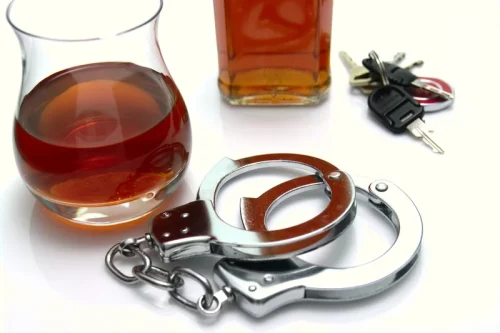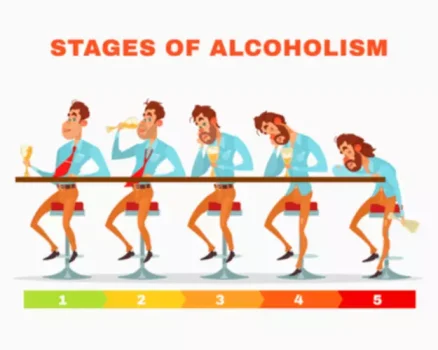
During supervision, each active case was discussed individually with regard to adherence to the manualized treatment protocol and the specific content of the session. “Later on in the night, you may find someone crying or becoming overly emotional, and this is because, as the alcohol wears off, there is a big drop in serotonin below baseline,” Tietz explains. But effects to other neurotransmitters, including gamma-aminobutyric acid (GABA) and glutamine, may also be involved. Alcohol can impair the OFC, and disrupt communication between the OFC and the amygdala. Without the OFC doing its job of calming those intense emotions, a person can have a strong reaction (2). Fortunately, people who become irrationally mad when drunk can work to prevent and treat their behavior.
The Experience Blog

However, the sample size was appropriate to the state of knowledge in the field, this being the first randomized controlled trial with a new and untested intervention. Relatively small between-condition differences may have https://ecosoberhouse.com/ gone undetected, and future research should consider larger sample sizes to increase power to detect more modest effect sizes. The urn random assignment was carried out by the project coordinator via a computerized program.
Social and Cultural Factors Allow for More Aggression after
- For example, if a person goes into a drinking experience with the expectation of alcohol helping them pick a fight with a partner later, that’s then likely to happen.
- Lack of impulse control can make someone fly into a fit of rage or become aggressive rapidly.
- The probable reason for this is genetic factors and an increased tendency towards substance use.
- Moreover, alcohol also affects the information-processing pathways present among the brain cells.
- If you live with underlying anger challenges, for example, it may not be as noticeable when you’re sober because your frontal lobe allows you to manage your emotions and your behaviors.
There is a clear link between alcohol consumption and increased aggression levels. However, it’s essential to recognize that not all individuals who consume alcohol alcoholism and anger will exhibit aggressive behavior. Finally, despite positive ratings of treatment satisfaction, attendance was less than ideal for both interventions.

AUD Treatments Targeting Stress, Craving, and Loss of Control of Alcohol Intake
This may explain why they are angry more often and act more aggressively than someone who does not have this personality trait. As with all co-occurring disorders, it’s important to treat anger management issues and AUD at the same time as part of a comprehensive treatment program. The World Health Organization (WHO) warns that alcohol interferes with a person’s cognitive and physical functioning, inhibiting self-control and making it more difficult for a person to recognize when things have gone too far. It can be harder for someone under the influence of alcohol to notice typical warning signs that emotions, especially anger, may be getting out of control.
Alcohol and Stress—Shift From Positive to Negative Effects
- Many people enjoy alcoholic drinks as a way of relaxing, sometimes to reduce the tension of socializing or to quiet an overactive mind.
- By acknowledging the potential for alcohol to exacerbate anger and aggression, individuals can make informed decisions about their drinking habits and develop proactive strategies for managing their emotions effectively, both in sober and intoxicated states.
- She has spent the past 5 years specializing in the treatment of opioid and alcohol use disorders.
The co-treatment of alcohol recovery and anger management can be a very individualized process that may change according to your needs. Your treatment will depend on the role alcohol plays in your life and how present anger is during your everyday lived experience. According to a review from 2017, alcohol is more likely to cause personality shifts related to negative emotions, but that doesn’t mean anger is the most common emotional experience while drinking.
2 Addressing Anger in the Treatment of Alcohol Problems
- You may become angry on various occasions, and it varies from person to person how you will express your anger.
- In some cases, medication may be utilized as adjunctive treatment to address co-occurring symptoms such as mood instability or alcohol withdrawal.
- Contact WhiteSands Alcohol and Drug Rehab today to focus on your well-being as a serious goal.
By seeking recovery for problems with alcohol and anger, you can work toward a more positive life. Have family members or others mentioned concerns about your alcohol consumption? Did you recently experience an incident that stemmed from your alcohol-related aggression? These situations likely spark emotions when you think about them — perhaps you feel embarrassed or ashamed. In addition to receiving guidance from experienced professionals, support groups are effective for building relationships. Recovering from an alcohol use disorder can be isolating, especially when you consider how widespread drinking culture is in the United States.


Decreased cognitive function also means it’s more likely for you to misread a situation and overreact. For example, if you’re intoxicated, you might perceive someone bumping into you by accident as a provocation and respond aggressively. These medicines can help reduce the negative side effects of detoxification and withdrawal. Additionally, there is evidence that chemical and biological factors play a role. Ultimately, nobody knows what comes first—anger or alcohol use disorder (AUD). However, some studies have been done to better understand who is more at risk.
In addition to potential mental health disorders related to difficulties managing anger, there are several physical side effects of unchecked and chronic anger. This activates the stress response, which speeds up heart rate, respiration, and blood pressure, and increases body temperature. Stress also affects focus and attention abilities, and heightens energy while decreasing appetite and sleep functions. Males are more likely to express aggression in a physical and/or direct form, whereas females are more likely to express it in an indirect form.

